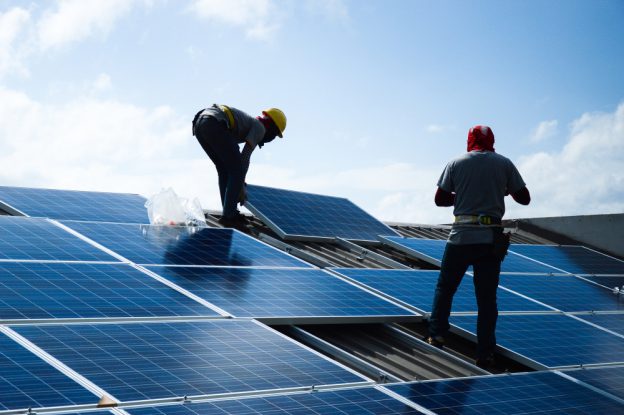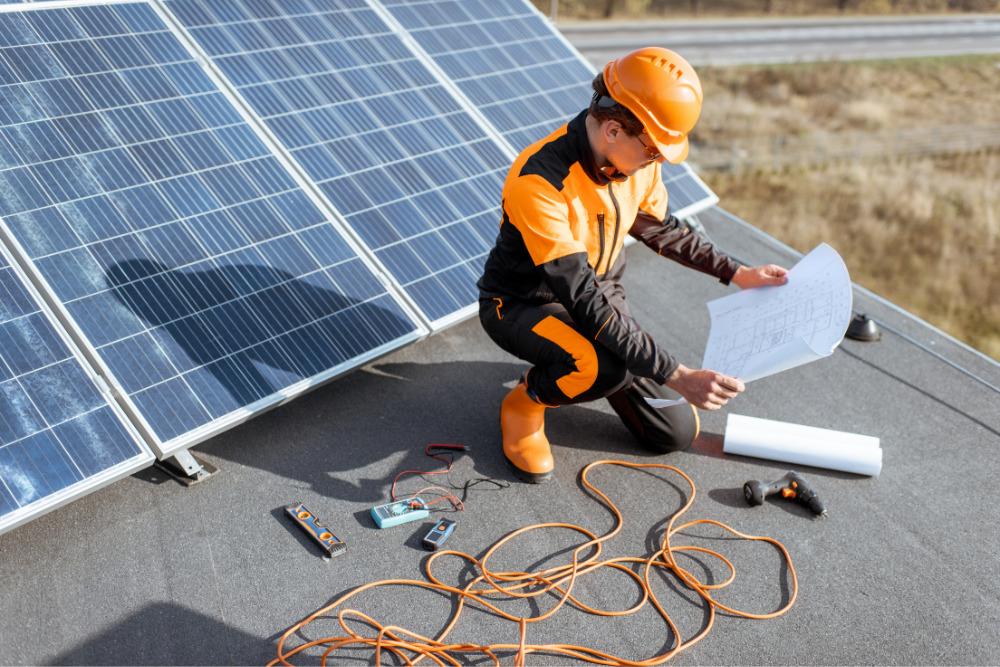Just How to Choose the Right Solar Energy Installation for Your Energy Demands
Choosing an ideal solar power installment requires a systematic strategy that starts with a clear understanding of your energy usage patterns and awaited future needs. Aspects such as the kind of solar innovation, setup expenses, and readily available rewards play crucial roles in making a notified choice.
Assess Your Energy Requirements
Analyzing your energy needs is an essential very first step in the solar energy installment procedure. Recognizing your existing and future power intake will guide the layout of an effective solar system tailored to your demands. Beginning by examining your energy bills from the past year to identify your average regular monthly energy use, typically determined in kilowatt-hours (kWh) This data will give a structure for determining the dimension of the planetary system you might need.
Think about seasonal variations in power consumption, as certain months may demand even more power due to heating or air conditioning needs. Additionally, evaluate any type of organized changes in way of life or building, such as the purchase of electric automobiles or home developments, which may increase your energy demands in the future.
Once you have a thorough understanding of your energy usage, you can identify the proper solar capability needed to fulfill those requirements. This assessment not only assists in sizing the solar setup yet likewise notifies decisions concerning power storage space options and possible grid connection requirements. solar photovoltaic. Ultimately, accurately gauging your energy requires guarantees that your solar energy system runs effectively, supplying the benefits of sustainable power abreast with your usage patterns

Evaluate Solar Modern Technology Options
When considering a solar energy setup, it is vital to evaluate the different solar technology alternatives readily available to guarantee the system lines up with your energy demands and spending plan. The key innovations include monocrystalline, polycrystalline, and thin-film solar panels, each offering distinct advantages and disadvantages.
Monocrystalline panels are understood for their high performance and performance in restricted area, making them suitable for residential setups with much less roofing location. Thin-film solar panels are lightweight and flexible, suitable for unusual surfaces, but they generally have reduced efficiency and require even more space to produce the same energy outcome.
In enhancement to panel types, take into consideration solar inverters, which transform the direct current produced by the panels right into rotating current for home usage. String inverters, microinverters, and power optimizers each have distinct benefits that can influence system efficiency. Evaluating these alternatives will certainly help you make an informed choice that satisfies your energy demands properly.
Consider Installment Prices
Understanding installation expenses is critical for anyone taking into consideration a solar energy system. These costs can vary dramatically based on several factors, including system dimension, sort of panels, and installation intricacy. A regular residential solar installation might range from $15,000 to $30,000 before incentives, which can be a significant ahead of time financial investment.
To properly analyze installation prices, it is necessary to get comprehensive quotes from multiple solar providers. These quotes ought to damage down the costs of equipment, labor, permits, and any type of extra devices required for the installment. Pay attention to the top quality of materials being supplied, as higher-quality panels and inverters can lead to far better effectiveness and longevity, potentially balancing her explanation out greater preliminary expenses.
In addition, think about the long-lasting implications of installation expenses. A cheaper setup may conserve money upfront but might result in higher upkeep prices or lowered energy production gradually. It is also recommended to evaluate financing choices, such as solar fundings or leases, which can affect your total monetary dedication.
Study Resident Rewards
Discovering neighborhood motivations can substantially influence the overall expense of a solar energy setup. Several regions use a range of monetary incentives aimed at advertising renewable resource use, making solar energy extra easily accessible and budget-friendly for property owners and services alike.
These incentives may include government tax obligation credits, state discounts, and regional utility business programs that provide money rewards or internet metering options. The Federal Financial Investment Tax Obligation Credit (ITC) permits you to subtract a substantial percent of your solar setup expenses from your federal tax obligations. State-specific incentives can even more boost these financial savings, typically in the kind of direct cash rebates or tax credit ratings.
Additionally, some neighborhood governments may offer real estate tax exemptions for solar installments, making sure that your investment does not raise your home tax liability. Looking into these incentives can discover substantial financial savings, which can affect your read what he said decision on the size and sort of solar system to set up.

Pick a Respectable Installer
Picking a reliable installer is essential to making sure the success and long life of your solar power system. The setup procedure dramatically influences the performance and effectiveness of your solar panels, making it critical to select a contractor with a tried and tested track record.
Next, verify the installer's qualifications, including licenses, certifications, and insurance policy. A reputable installer ought to hold accreditations from identified organizations, such as the North American Board of Licensed Power Specialists (NABCEP), indicating a high degree of competence. Additionally, ask about the installer's experience with similar tasks, especially in your area, as neighborhood environment and policies can affect setup techniques.
Demand several quotes and contrast them not just on rate yet likewise on the quality of equipment and guarantees supplied. A credible installer should give transparent details concerning their products and services, aiding you make a notified choice. By investing time in choosing a reputable installer, you will certainly improve the general performance and longevity of your solar energy system.
Final Thought
Finally, choosing the suitable solar power installation requires a thorough examination of energy demands, an understanding of available solar innovations, and a careful consideration of installation expenses. Exploring this local motivations can enhance financial benefits, while selecting a reliable installer ensures high quality handiwork and reliability. solar photovoltaic. By carefully analyzing these variables, people can achieve an ideal solar remedy that satisfies both current and future energy demands, eventually contributing to sustainable energy practices and expense financial savings in time